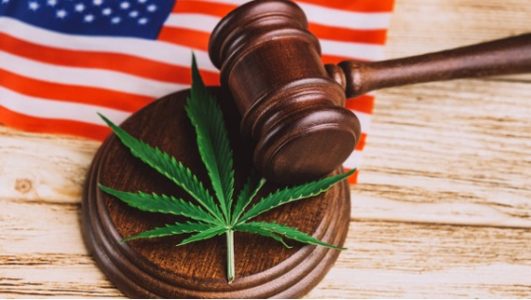Widgetized Section
Go to Admin » Appearance » Widgets » and move Gabfire Widget: Social into that MastheadOverlay zone
Public Largely in Agreement Over Drug-Related Policies
The views expressed are those of the author and do not necessarily reflect the views of ASPA as an organization.
By The VCU Wilder School Office of Research and Outreach
June 10, 2024

In 1971 under President Nixon’s leadership, the “war on drugs” was officially declared. Now, over 50 years later, policymakers still debate if and how to implement public policies related to drug use and sales.
Opioid deaths have recently increased in Virginia, and according to the Virginia Department of Health, an average of seven Virginians died of a drug overdose every day in 2021. Between 2020 and 2021, the number of overdose deaths increased by 29 percent. There has been legislation to increase penalties for dealers found responsible for dealing a drug that caused a death overdose. In order to learn more about the perspectives of Virginians on how to address this increase, the January 2024 Wilder School Commonwealth Poll asked: Do you agree or disagree with increasing penalties for drug dealers found guilty of dealing opioids when the drug leads to a death overdose?
Poll findings showed that just over 8 in 10 Virginians (83 percent) agreed with the legislation, while 12 percent disagreed. Opinions did not vary much across key demographics, though Virginia Republicans leaned somewhat more favorably to the legislation than Democrats (90 percent compared to 77 percent).
This poll obtained telephone interviews with a representative sample of 812 adults, ages 18 or older, living in Virginia. Statistical results were weighted to reflect known demographic proportions in the Commonwealth. A two-stage weighting procedure was used to weight this dual-frame sample by the demographic characteristics of gender, age, education, race, ethnicity, Hispanic origin, region of residence and personal phone use. The margin of sampling error for the complete set of weighted data was ±5.46 percentage points.
In addition to opioid-related policies, the poll also asked about public perceptions of the legalization of marijuana. Right now in Virginia, the possession of certain amounts of recreational marijuana is legal, but the sale of it is not. To better understand how Virginians might feel about potential changes to this law, the poll also asked participants:
- Do you agree or disagree with the following statement: Virginia lawmakers should legalize the retail sale of marijuana in Virginia, and
- Do you agree or disagree with the following statement: If Virginia lawmakers regulate the retail sale of marijuana in Virginia, the taxable income should be used to help fund Virginia’s social services.
For the first question, a majority of participants (55 percent) said that they agreed that Virginia lawmakers should legalize the retail sale of marijuana in Virginia, while 38 percent disagreed. Opinions varied significantly by political affiliation; 76 percent of Democrats favored legalization of marijuana sales compared to 39 percent of Republicans and 46 percent of Independents. Differences also existed based on income level. Those with annual household incomes of $35,000 to $100,000 were less likely to agree with the statement (44 percent) compared with those earning either less than $35,000 (71 percent) or $100,000 or more (64 percent). Generally, younger participants were also more likely to agree, with 71 percent of 18 to 44 year olds and 46 percent of those 55 years or older saying that they agreed.
These findings are similar to those of national polls, with a March 2024 survey from the Pew Research Center showing that 57 percent of adults in the United States believe that marijuana should be legal for medical and recreational use, and 32 percent saying that it should be legal for medical use only. Only 11 percent said that marijuana should not be legal at all.
If a participant said that they strongly agreed, somewhat agreed or somewhat disagreed with the Commonwealth Poll question about the potential legalization of retail marijuana sales, they were asked the second question on whether they agreed or disagreed that, if Virginia lawmakers regulate the sale of marijuana in Virginia, the taxable income should be used to help fund Virginia’s social services. Of those asked, 82 percent of Virginians said that agreed, and 16 percent disagreed. Although all political affiliations had a majority saying that they would favor the legislation, Democrats were somewhat more likely to agree, with 92 percent agreeing compared to 71 percent of Republicans and 60 percent of Independents.
As we look ahead to future elections and legislative sessions, debates over policies related to marijuana, opioids, and more will continue. By listening to their constituents, consulting polls such as the ones referred to in this article and staying up-to-date on the similar policies at the state and federal levels, policymakers at all levels can help to ensure that policies are made with the best interests of the public, and support from the public, in mind.
Author: The Wilder School’s Center for Public Policy advances research and training that informs public policy and decisionmaking to improve our communities. Drawing on the wide-ranging expertise of Wilder School faculty, we provide services including leadership development and training, economic and policy impact analysis, survey insights and program evaluation to clients in governments, nonprofits, businesses and the public, across Virginia and beyond. Twitter: @VCUWilderSchool


Follow Us!